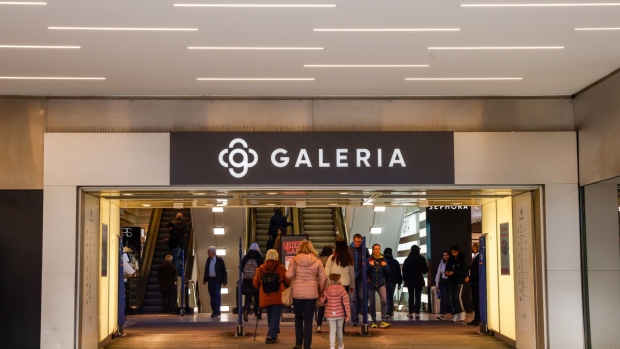Apr 10, 2024
Galeria’s Former Owner Picked to Revive Troubled German Retailer
, Bloomberg News

(Bloomberg) -- Germany’s Galeria has picked a former investor to try and revive the troubled department store chain after a series of insolvencies under the ownership of Austrian tycoon Rene Benko’s Signa.
The insolvency administrator of Galeria Karstadt Kaufhof chose an investment vehicle of Hudson’s Bay Chairman Richard Baker and the former head of beauty retailer Coty Inc. to take over the troubled company after a bidding process.
Creditors still need to approve the takeover at a meeting next month, which is the latest attempt to revive the German department store chain after a series of difficulties ranging from the coronavirus pandemic to economic headwinds and changing retail habits.
The bidder is aiming to keep at least 70 stores out of 92 and maintain as many employees as possible out of about 12,000 currently, according to a statement from administrator Stefan Denkhaus.
Hudson’s Bay - together with Signa - orchestrated the merger of Germany’s two main department store chains in 2018, before selling its stake to its Austrian partner a year later. Under Signa’s subsequent leadership, Galeria filed for three insolvency proceedings in four years, the latest coming last year as part of the financial meltdown that’s hit the conglomerate.
Under the proposal, Baker’s investment company NRDC Equity Partners would lead the takeover with BB Kaptail, the family office of Bernd Beetz, a former Galeria Kaufhof supervisory board member and erstwhile chief executive officer of Coty.
“We want to invest, develop and grow long-term,” Beetz said in the statement. “The next weeks will be decisive to create conditions for a solid business model.”
Once a staple in German city centers with 170 locations during its peak, the number of Galeria stores has almost halved as a result of the financial difficulties.
Signa’s dealings, including charging high rents from Galeria for properties it owned via other units, has become a topic of hot debate in Germany. Under the previous restructuring, the government wrote off about €590 million ($641 million) of Covid-era loans to the company.
©2024 Bloomberg L.P.


